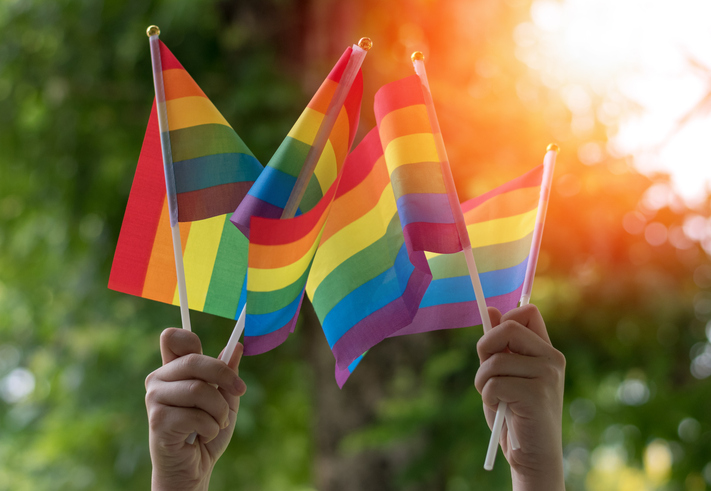Pride in anaesthesia

“Ben, is every anaesthetist on twitter gay?”
We were having a trainee night out when one of my junior colleagues asked me this. I’d noticed it before, but just assumed it was my own little echo chamber, but that question made me think about it. Of all the specialities I worked with regularly in hospital, anaesthesia is definitely one of the more LGBT heavy ones.
When I started medical school I was always attracted to acute specialities, I wanted to look after patients who were among the sickest, so I naturally gravitated to hospital medicine. So why did I choose anaesthesia? It all goes back to my first clinical placements as a 3rd year. I was exposed to anaesthetics from that first day, being given the opportunity to manage an airway on my first theatre list. I was introduced to the speciality by an inspirational consultant who has been a source of ongoing support throughout my career, and her expertise and skill alongside her willingness to teach anyone, regardless of their role, was one of the first signs of the equality that our speciality fosters.
I was repeatedly exposed to anaesthesia as a speciality where individuality was valued, and where people were accepted and excelled regardless of their gender, race or sexuality.
Having been the only “out” student when we started university, I had always felt I was out on a limb. Amongst my peers, over the years a number of fellow students came out, but I was always the first and many would consider the most “obvious”. I had regularly dealt with prejudice about being gay and studying medicine, comments from classmates, social contacts and educators revealed the assumption that gay men become nurses, not doctors; similar to that prejudice displayed toward my female colleagues today, so finding LGBT role models was always going to make a difference on career choices. Again, we go back to student days, and my first Elective Module. I had chosen to do a rotation through ICU and Anaesthetics in our DGH. Suddenly I’m there with only one other student, we’re not vying for opportunities with others and able to get experience of what is involved in resuscitation and critical care. We were treated as part of the clinical team and didn’t feel like we were getting in the way as only a medical student can. Added to this was the fact that the doctors we worked with had not one but TWO LGBT individuals on the team. They were open about their sexuality, they were confident about who they were, and their sexuality had no bearing on how they were treated by the other members of the team. They were judged purely based on their clinical abilities. It was refreshing. Here was a speciality and team who didn’t make assumptions about their colleagues or patients, assumptions which were all pervasive throughout the Medical School experience, where every mention of homosexuality automatically ended up in an exam question involving HIV, Syphilis or multi-resistant Gonorrhoea…
Anaesthetics is a speciality that, from my perspective, values each individual for what they bring, not for who they fall in love with, or indeed for any other reason.
Every year from that point, I was repeatedly exposed to anaesthesia as a speciality where individuality was valued, and where people were accepted and excelled regardless of their gender, race or sexuality.
Anaesthetics was consistently the speciality where I encountered members of the LGBT community, and allies who accepted the individual in front of them. The Consultant who allowed me to sit with the transman in the anaesthetic room before his hysterectomy because he wanted a “familiar face” and I’d seen him in pre-op, the Registrar who took me along to Birmingham Pride as an FY1 with his friends, because my partner at the time refused to go to Pride events, and the apparent takeover of the anaesthetics department that occurred as a Core Trainee, when half our Core Trainees were LGBT. Anaesthetics is a speciality that, from my perspective, values each individual for what they bring, not for who they fall in love with, or indeed for any other reason.
Social media certainly can make it seem that every anaesthetist is gay, but that is because we are proud to be ourselves, and it gives us a space to have a voice, to advocate for ourselves and our patients. As anaesthetists we are uniquely placed to care and advocate for those at their most vulnerable and provide a safe space for them to be themselves. Movements such as the NHS Rainbow Badge have helped with this, and it certainly made me smile when I saw that among the first to sign their pledge and don their Rainbow Badge at start were my anaesthetic colleagues, both medical and AHP.
Dr Ben Hockenhull MBChB FRCA He/Him
Consultant Anaesthetist